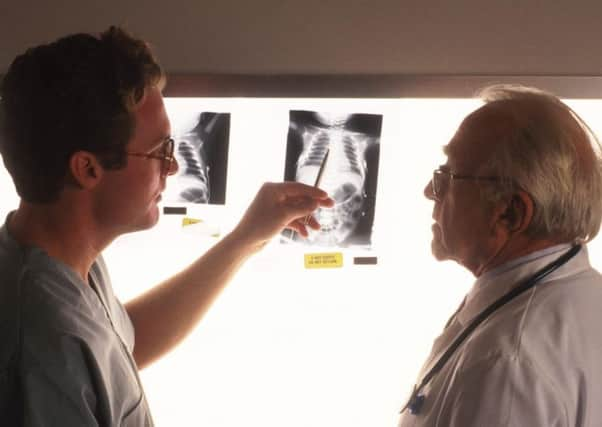Ian Murray: Edinburgh's world-leading cancer research is at risk


Nothing gives me greater pride than when I hear that some of the most advanced research and development in the world is taking place here. From the deepest depths of the Earth with the work of some of the world’s top palaeontologists to the farthest away places in the universe through our astronomers, and everything in between, we are at the heart of developing the technologies and understanding of the future.
None more so than in medical research. Edinburgh has a centuries-long tradition in this area and I was delighted to meet with Cancer Research UK this week to see the work they are doing into finding the best diagnosis and cures for cancer, and particularly brain cancer.
Advertisement
Hide AdAdvertisement
Hide AdThe statistics are stark. Almost half of everyone will get cancer in their lifetime and, with a growing and ageing population this will only increase. Of course, governments and individuals must tackle the preventable risk factors such as smoking, obesity and alcohol, but to achieve the best outcomes for patients, we must create the most conducive environment for our scientists to find treatments and cures.
In Edinburgh and the Lothians, over 4,700 people are diagnosed with cancer every year and there are around 2,200 deaths as a result. Everyone will know someone who has been affected by cancer. That is why the work of charitable organisations like Cancer Research UK, which alone spends over £420m a year on research, are so vital.
And our position in the European Union helps make it all happen.
More than a quarter of all cancer clinical trials involve at least one other EU country. Half of all international research involve partnering with more than 400 organisations based all over the EU. In the last 10 years, the UK collaborated in 4,800 clinical trials with at least one other EU country, and over a quarter of all PhD students, researchers, and staff are from the EU.
So, why then would Government policy be making their lives more difficult and uncertain? In the interests of current and future cancer patients, vital research must be safeguarded if the UK leaves the EU. It is essential that cross-national collaboration on major projects with EU partners continues so adequate volumes of data can be accessed for clinical trials. The industry needs to be able to continue to recruit and retain the very best global scientific talent that drives the research forward. Patients need to have instant access to the most innovative treatments and drugs across the EU without unnecessary and lengthy delays in implementation in the UK.
But the Government policy on Brexit puts this all at risk. Cancer Research UK made this very clear.
Researchers in Edinburgh are at the heart of the breakthroughs that benefit cancer patients all over the world but as the Government take us closer to a no-deal or very bad deal Brexit, it is putting the city’s position at the forefront of critical scientific and medical research at risk. The Prime Minister couldn’t be making more of a mess of Brexit as she panders to her colleagues who want a no-deal and tries to keep her fragile coalition with the Democratic Unionists together. Given there is no majority in Parliament for any way forward and Brexit will be an unprecedented but avoidable tragedy of self-harm, the best way forward, in my view, would be to let democracy flourish and allow a People’s Vote on any deal with the option to remain in the EU.
